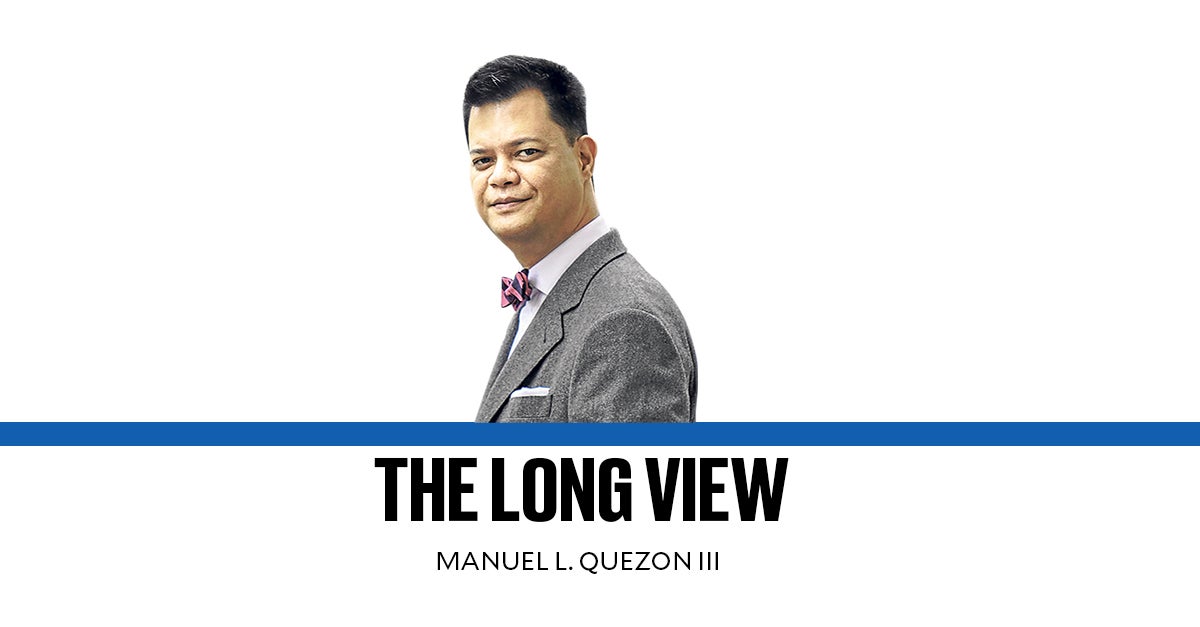The passing of opportunity

Nothing in Filipino time is ever precise, but it may later be written that the time of maximum peril and opportunity, both for the administration and its main opposition, took place in the month that ends on April 4. That’s because it began on March 4, with a little-noticed news item that the head of the Presidential Security Command had been suddenly replaced. What followed, in quick succession, retrospectively explained that swift but decisive move: the departure of former president Rodrigo Duterte for Hong Kong on the same day the International Criminal Court issued a warrant for his arrest; reports of an impending warrant, two days later; the arrival, two days after that of the former president, who then faced the formerly unthinkable: arrest and detention then transport to The Hague, where he was placed in the custody of the ICC to face the charges of crimes against humanity.
As far as that case is concerned, for all the bravura of his defense counsel, Duterte himself seems to recognize that the time has come to issue his political testament, which he did, by way of a statement made on the plane taking him to Holland during its extended stopover in Dubai: “For all of the whatever happened in the past, leave it to me to front for our law enforcement as well as the military. As I said before, l will protect you, and I will answer for everything. This will be a long legal proceeding, and I say to you, I will continue to serve my country, and so be it if that turns out to be my destiny.”
Back in 2016, the moment he said it, I knew that he had won the presidential debate: “The problem of this country,” Duterte said, “is leadership.” When the time comes to summarize what leadership meant, both for him and for a public that gave him the highest poll ratings of any presidency so far, I believe it will boil down to his having offered the Filipino people a ‘Grand Bargain.’”
That bargain had three aspects. 1. A guarantee to liquidators: if they followed his orders and followed a simple rule—make every instance of a liquidation plausibly a case of self-defense—that he would use his power and prestige, not just to reward, but to protect, those loyal. 2. To the public, in exchange for their mandate and continuing support, he would assume total—moral, legal, political—responsibility for liquidations, absolving the public of any complicity in a process he never fully disclosed, delivering an outcome the public applauded and deeply desired. 3. In exchange for impunity, the public would feel (vicariously, to be sure) the intoxicating power of being judge, jury, and executioner, thus sharing the ultimate satisfaction of belonging to a cause larger than themselves: ridding society of “vermin.” That the public, too, demonstrated anxiety about their loved ones or even themselves becoming collateral damage, is another thing.
The half month since Duterte appeared before the ICC included the commemoration—there was little to celebrate—of his 80th birthday. It included the morale-boosting snapshot of public opinion released within days of his arrest: the trajectory of his senatorial candidates, in particular Bong Go and Ronald dela Rosa, was strongly upward, while that of the administration slate was steady or downward. The interesting exceptions are Imee Marcos, who has apparently been punished by both sides for trying to keep a foot in both camps and, to a lesser degree, the Villars, who, like Imee, doubled down on demonstrating their loyalty to Duterte.
It also included, in addition to a nationwide plurality last December, agreeing in February with the impeachment of the Veep, an actual majority agreeing with the former president being held accountable for killings related to illegal drugs during his presidency. It also included both the vow and the threat of a massive, global rally to show the extent of Duterte’s support, which didn’t materialize on his birthday, except in his Davao heartland. It included the Dutertes finally appealing to their supporters to cease and desist their online activity critical of the ICC.
There are two parts to every midterm campaign. The national campaign at the start reveals who is to be taken seriously and who doesn’t have a chance. The local races are then a matter of delivering to a limited menu of senatoriables based on a combination of administration reach and resources and the counterweight of public opinion and local interests. Here, the administration may be lackluster, but still dominant.





















Maritime security is a core issue for Filipinos